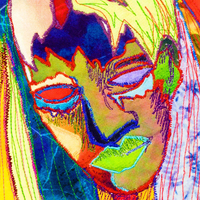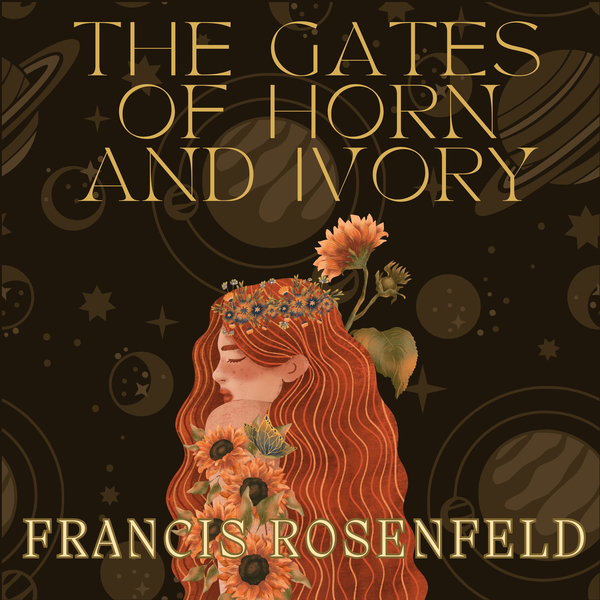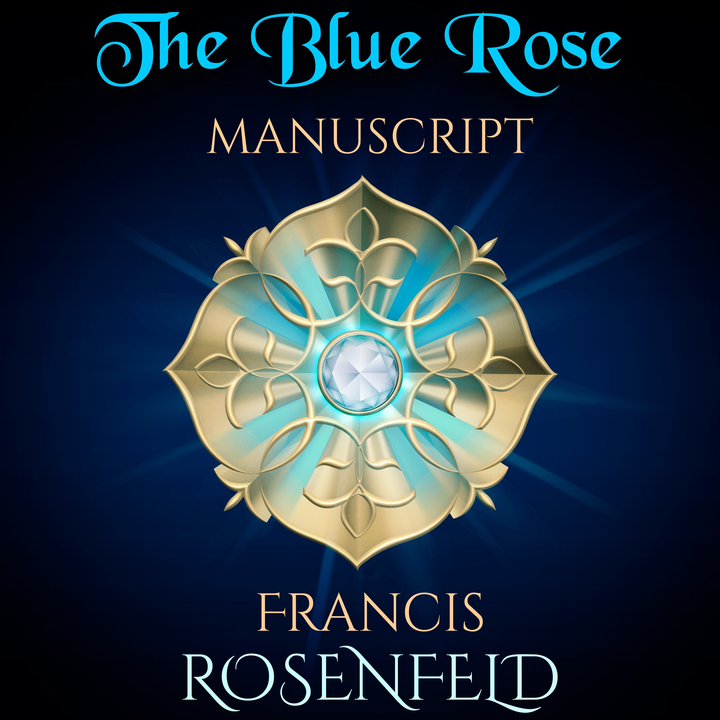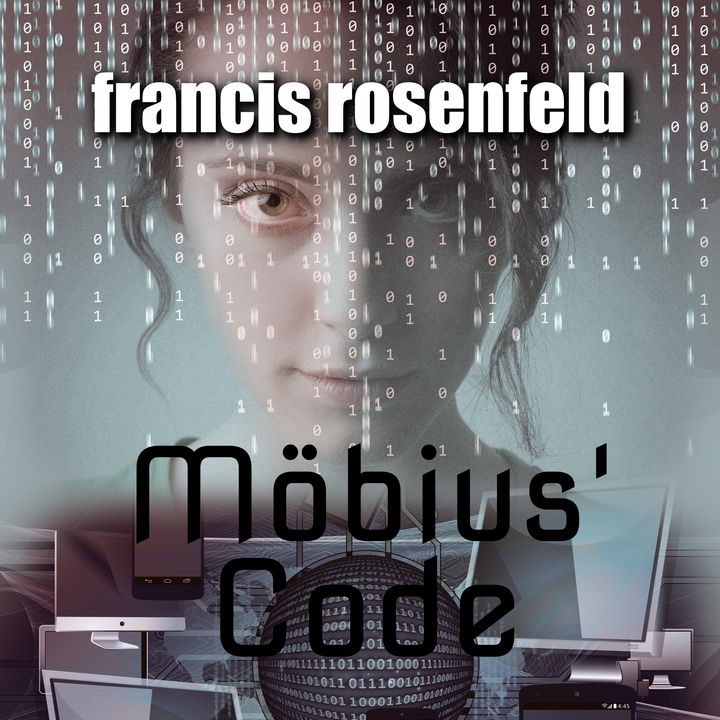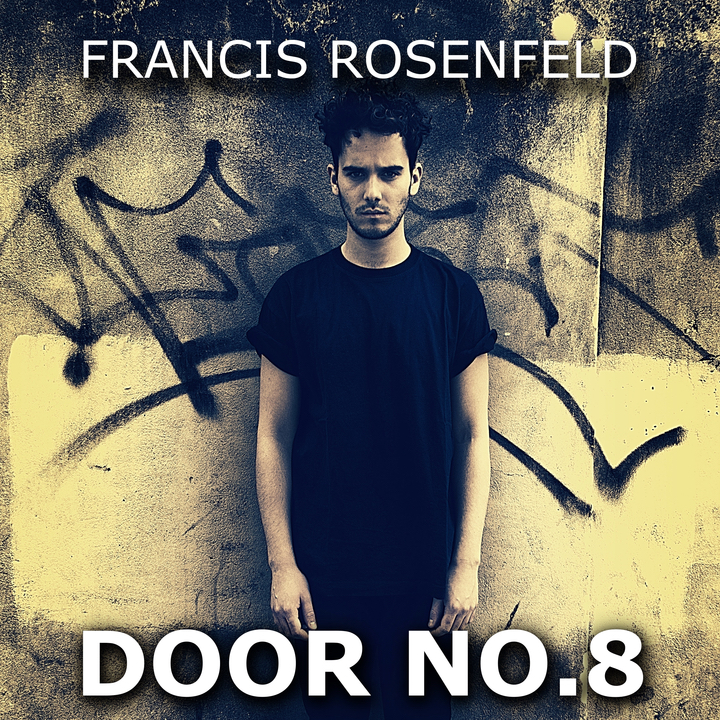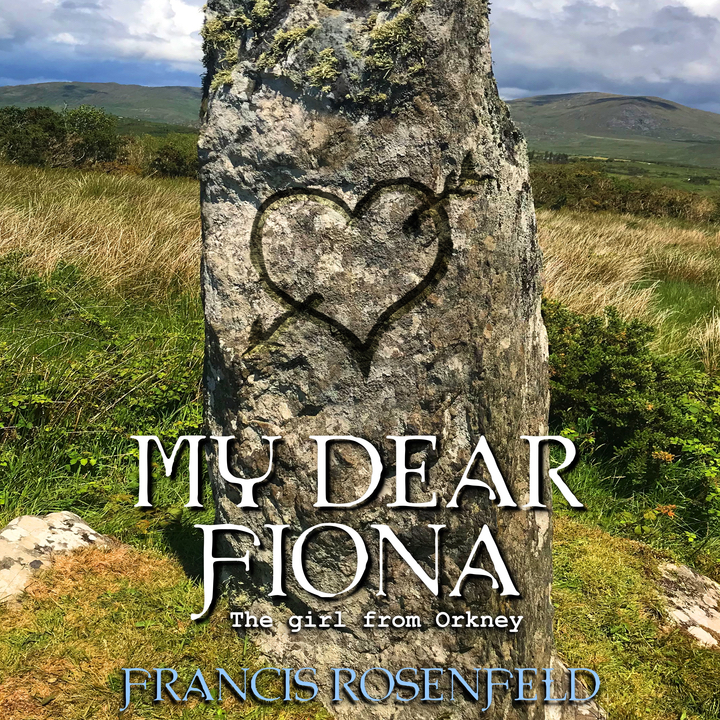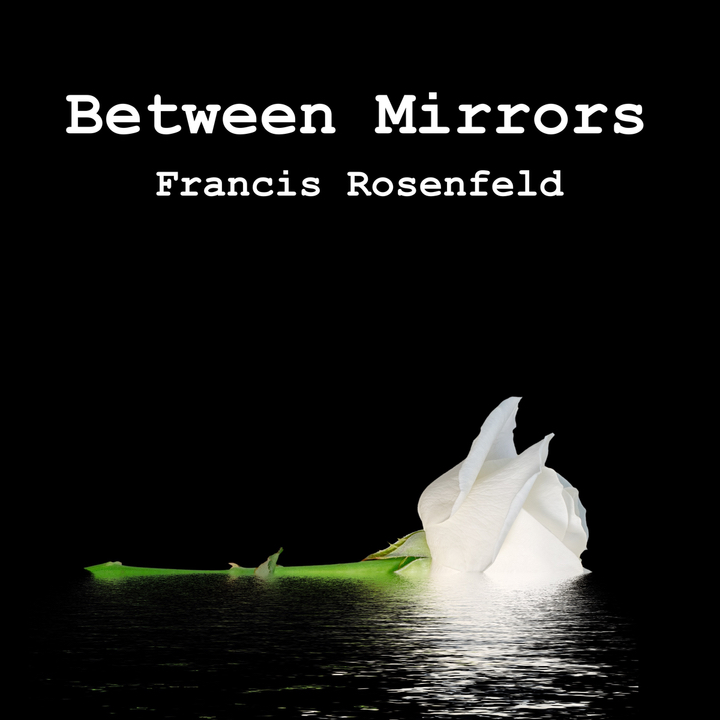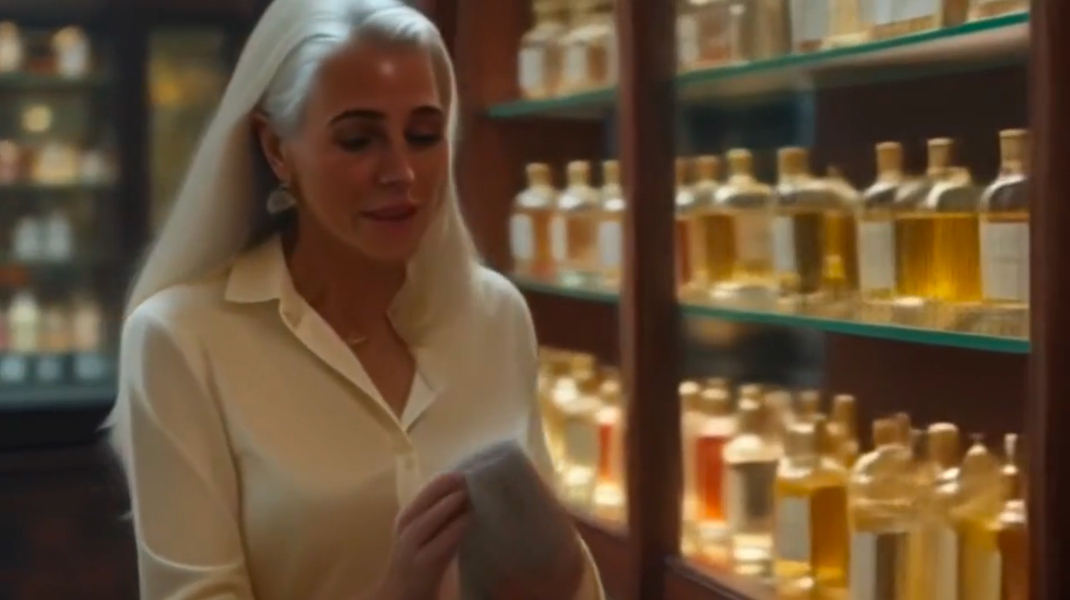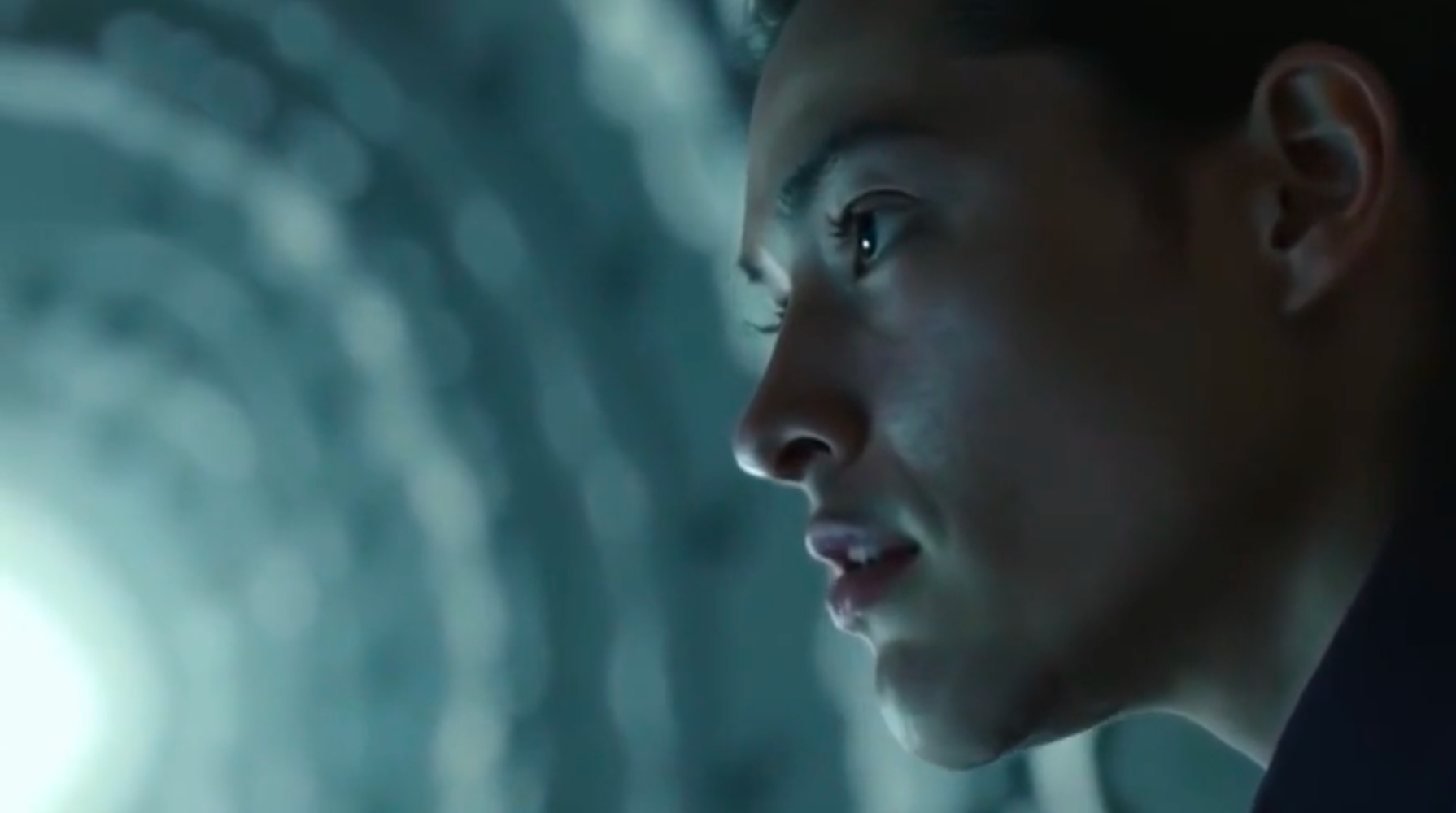New Stories For You
Just Sit Back and Listen
Hi, I'm FRANCIS ROSENFELD
I GARDEN, I WRITE, AND I WATCH THE WORLD GO BY
There is nothing new under the sun but our perception of things. Technology advances, civilizations flourish and fall, but the human spirit never changes. We are born with all the storylines able to touch our soul.
These basic tales bind us through time and cultural differences and allow us to relate to each other while we harbor completely different views of the world. The rest is just letting life flow quietly through you.

WHY I WRITE
essaysWe thrive on empathy and recognizing ourselves in others; we love to know we’re not alone in our predicaments, victories or convictions.[...]
No story ever comes from nothing, there is no such thing as pure fiction. Without the honesty of real emotions and the authenticity of events that could have happened, the tale doesn’t touch the soul.
We thrive on empathy and recognizing ourselves in others; we love to know we’re not alone in our predicaments, victories or convictions.
We then reach for the mirror of stories, both real and made up, to see our own experiences reflected in them and find solace in the great sea of human thought, always in motion. We can’t help it, we’re wired to connect, care, be curious and offer opinions.
- I write because I saw people sitting on benches in front of the Brandenburg gate and staring at the wall behind it, in the hope that their loved ones, or long-lost relatives, may be doing the same thing on the other side.
- I write because I learned the story of the blizzard of 1954 when snow reached to the rooftops and people dug intricate systems of tunnels through it to reconnect their neighborhood.
- I write because nobody else woke up to the morning sun illuminating the wall in my grandparents’ guest bedroom, highlighting the golden stencil patterns and playing with the tree shadows, nor did anyone else watch the streams of fast flowing water wrap around my ankles as I walked home from school in a torrential summer downpour.
- I write because i was the one to come upon a very old headstone and been told the story of a pretty girl who died of consumption at the beginning of the twentieth century, aged sixteen.
- That story spanned seven decades to connect me to an unknown person’s life from way before my time. Who am I to let it pass into oblivion?
 find me in bookstores
find me in bookstores
A deluge of images and memories, so thick I have trouble keeping up, brings back places, people and times: the surreal feeling of walking on Broadway for the first time on a freezing January morning, the ghostly halo of Niagara Falls covered in ice at night, the skyline of Manhattan with the Twin Towers still etched into my brain, picking pumpkins in the rain and laughing, knee deep in mud, the space shuttle Columbia disaster, the Curiosity landing, the time before personal computers.
I write because I get caught in the maelstrom of feelings and events from so many people near and far and I don’t want their unrepeatable experiences to be forgotten.
I write because I lived, loved, learned, hurt, and I have so much to say!
Fresh Reads
Just baked

The Box
"You are wrong, there are only ten."
"No, there are not, trust me, there are eleven."
"Ten."
"Eleven."
"You don't know what you are talking about, there are twelve", said a skinny youngster with an unsteady adolescent voice that broke on strong vowels like a yodel.
"Care to count them, nerd-face?" a tall girl with glasses advanced to the center of the group.
"I don't have to, I know there are twelve," the slim youngster replied, irritated.
He hated bullies and was always incensed by the way she imposed her views on the group with complete lack of courtesy, but was too shy to protest. The tall girl was just about to embark on a lengthy and hopelessly irritating argument when one of the kids, and a younger one at that, dared to beat her to the punch.
"No, there aren't," the little guy mumbled with his mouth full.
The small disputing group drew closer, staring at the nondescript gray box in front of them. It had been there since morning, one rectangular bit of frustration.
..."What's going on here?" Mrs. Davenport approached, graceful as usual, her elaborately coiffed hair sleeked back and stepping lightly on her heels."Are you guys still debating?" she smiled and weaved her way through the group to get to the other side.
"Make sure you're not late for class," her sweet admonishment lingered behind her, shifting the students' focus away from the box for a second. The youngsters watched her go, then returned to the bone of contention.
"I'm telling you there are eleven", insisted a very fair skinned boy whose hair and eyebrows were almost as light as his complexion.
"And how would you know?" the tall girl clamored with a shrill tone in her voice that made several people shudder.
"I just know", the boy insisted, looking down with great conviction, loathed to engage the girl in yet another fight.
She delighted in conflict and seldom needed a reason to start another argument.
"Does anybody actually know what they are talking about?" she dared the audience, hoping that somebody would take the challenge. Nobody was eager to pick up the gauntlet, except, again, for the little guy who was still munching. He seemed to have an endless supply of snacks squirreled away in his pockets, supply he relied on to calm his jitters. He eyed the box with longing eyes, unwrapped another tootsie roll, preoccupied, then interrupted the conversation, speaking with his mouth full.
"I think he's right, there are eleven", he concurred without offering any explanation for his opinion.
They all looked at the box again, trying to assess the contents by volume. The tall girl puffed dismissively at his comment, eager to move on to her own estimation.
The bell rang and everybody rushed to the next period, concerned not to be late and forgetting all about the box for a while. Forty five minutes later the discussion resumed. Groups formed, contradicting each other, each more certain than the next and ardently defending their convictions.
The tall girl tried to drag the little guy into a heated argument, her efforts thwarted by a small but very noisy bag of pretzels.
'Where does he get them', she thought, irate, staring him down and waiting for the munching to subside. When the bag was finished, to her dismay, a chocolate cookie appeared to take its place. She gave up on the challenge of showing the little chipmunk what a real debate looked like, it didn't seem to be worth her trouble.
"You are not going to lunch?" a friend asked the skinny guy who shrugged and shook his head, too absorbed in the conversation scene to miss ten minutes.
His friend waited for a few moments and then left. The argument expanded and rose above their heads like the air of an overheated room; just when the tension was about to burst the bell rang again and they all went to class.
"So why are we wasting our time with this again?" the fair skinned boy asked, another hour later.
"Don't you want to know how many there are?" the tall girl asked.
"No, not really, who cares?" he retorted with non-dissimulated boredom.
"See, this is exactly what I'm talking about, it's people like you who care for nothing but themselves who are the problem", the tall girl took the opportunity to be offended and ran with it.
Mr. Schneider, the science teacher, approached the group, opened the box, took a doughnut, closed it right back and left.
"I think there were ten", the skinny guy said, mad at himself for not paying attention.
"Nine", the tall girl screeched.
"I tell you there were ten", he insisted.
"Did you count them?" asked the girl, aggressively getting in his face.
"Did you?" he countered, standing his ground.
The box defied them from the table, light gray inanimate object that it was, impervious to opinion, inquisitiveness and frustration.

The Talk
On my commute from work, I used to pass a graveyard.
I was young and filled with want, as one is at that age, twenty-eight, twenty-nine, the age when life makes demands of you, and you of it, but you’re excited about them because they’re yours. You’re too young to be entrusted with caring for others, but too old not to care for yourself, and you can feel your life bear down on you and ask for a tally of what you’ve done so far, how you’re doing with progress and what you’re planning to do to improve yourself.
You always have to improve yourself when you’re young, somebody will remind you of that, just in case you forget. Your list of wants is endless, while your means are never a match; you build castles in the air and fantastic lives you know will never happen, but you like to keep them in your mental quiver, just in case that momentous occasion shows up and luck springs up on you, unexpectedly.
You like to believe in luck at that age, what else is there?
One could be so in charge of one’s fate at twenty-nine, if only one pressed harder and applied oneself more, as one knows one can, because nothing can stand in the way of one’s destiny, the future one shapes for oneself.
...And yet, as I passed by the old stones they silently imposed reverence.
"Listen to those whose lives ended long before your time," they said.
"People just like you. Just like you."
I was always tense and frowning back then, (I still have the eleven lines to prove it), but ambition feels so pointless in the presence of the dead, and I guess I learned to listen to them then, one of the few things I learned to do well at that age, I learned to listen and understand the things that really matter are always unexpected gifts, and to see the fleeting nature of our so-called fate, and laugh at the silliness of the important and the urgent, because nothing that doesn’t outlast the season can be that important in this transient existence in which after a few short years you no longer recognize the person you used to be.
I listened to those departed strangers, whose lives and names I never knew, when they told me to live. You can always trust the departed. They have no hidden motives when they tell you to look past the pointless grind of daily chores and live, live, if you’re lucky to be alive, live!
"Luck is not winning the lottery, luck is being here with the sun in your face and the scent of crocuses in your lungs in early spring, and having the sense to wonder what bird is singing so sweet in the tree nearby, that’s luck, you hapless young woman trying to be everything to everybody at all times!"
I listened to the departed, always dutiful and polite, eager not to offend as I was at that age, lest someone might not like me, and passed the grave stones with quiet reverence, and only five minutes later forgot their request, because very important paperwork had to be processed, there were no clean clothes left and the boss had asked for that project to be done ASAP, we all know that ASAP project, there is no other kind, but the next day I passed by the graveyard again, and heard the wiser voices of the past scold me for being such an klutz I couldn’t hold a simple concept like that steady in my head.
I welcomed the sight of the old stones on my way home; they made me feel like I was chatting with a wise old friend, one who knows better and never gives you bad advice; no matter how my day had been, they comforted me, always there to remind me of what really matters, and whose life I’m supposed to live. You don’t live your life most of the time, have you figured that out yet? You manage expectations, balance priorities, execute plans. The dead were there to teach me how to live.
You can’t share this kind of story with your friends, because you know who lingers around graveyards? Vampires and crazy people. Normal people buy things and then brag to their friends about what they bought, and secretly rejoice when they learn their friends haven’t bought those things yet. They bellyache over career moves, neighborhood resale values, the size of their heinie.
That’s what normal people do at twenty-eight, when society imposes an unwritten obligation on you to feel insecure, and want things that are always just slightly out of your reach, but which you could have gotten if only you were a little better, just like other people always seem to be, something your betters never forget to point out to you.
You can’t share this kind of story with your parents, who question where they went wrong in your upbringing and ask offended how can you be so morbid, after all the hardships they endured on your behalf, just so you’d make something of yourself, for God’s sake, not give them more things to worry about with your creepy death obsession.
Death is not to be discussed with your elders.
Ever.
But the departed smiled kindly at my pointless fretting, and I smiled too and kept our conversation secret, like all the important talks in life must be. You don’t share the wisdom that you want to keep.
There is a special aura around the days that matter.
However long a time has passed, or however many things have happened since, you vividly recall exactly how the tree blossoms smelled that afternoon in early spring, so important it etched every one of its details in your memory.
"Live, you goose," the departed asked me. "Live, because you’ll wake up one morning an old woman, if you’re lucky, and wonder what happened with your life! Live now! Live tomorrow! Live every day! LIVE!"
“But what about the grant application?” I asked, making clear, to their dismay, that I didn’t get the message. One doesn’t, not at that age, not for anything.
How sad is it we all have to repeat the older generations’ mistakes ad infinitum, like a printing error message that keeps replicating automatically in hundreds of copies, wasting the ink and the paper?
One day I stopped passing by that graveyard, because, as the departed had already explained to me, life gets reshaped constantly and the surroundings always change, and you’re always too busy to notice.
One thing about graveyards, though, you can pretty much find one anywhere.

Tillie
”You really want to try this?" the Master asked, unconvinced.
Dregs of bitterness surfaced from the bottom of his thoughts and he pushed them back before they clouded the pristine waters of his gaze.
So many disciples, so many years, and not one of them had made it out of the Fog, not alive anyway. The Fog was ruthless and cold, the absolute judge and mirror of the soul. It found everyone wanting.
The Fog had taken a piece of him too when it called out to him, how long ago, it didn't even matter now. It took him, he didn't seek it, that's how the Fog was. It didn't like being summoned, challenged or besought: it reigned supreme.
"Yes, Master," the supplicant confirmed, with a light in his eyes that portended doom to his wise teacher.
It pained him to see that light be lost forever. Nobody had ever come out of the Fog with their soul unmarred. That was the price it imposed on the daring: it forced them to forgo their right to happiness and hope.
"And have you properly prepared yourself for this journey?" the teacher asked, serene, hiding all his reservations about this endeavor, which he thought misguided, inside the crystal fortress of his mind.
The Master had nothing to hide.
...Like a structure made of glass his mind let the light shine through, revealing every detail, and gave the careless a false sense of transparency, but the thoughtful, those who examined it closer, found themselves disoriented in it, like in a hall of mirrors, where one couldn't distinguish the real things from their reflections, where the real and virtual worlds collapsed into each other, and any sense of direction got irretrievably confused. The supplicant looked into his teacher's eyes and his mind wandered aimlessly into one of the halls of his crystal mind palace and got trapped in it, hopelessly lost.
The Master sighed, his soul already mourning; there was no way this young chap would make it out of the Fog, no way at all. It was a painful exercise in futility, punishable by death: the cost of foolishness one had to accept.
"Do you have any advice, Master?"
'Don't go,' the teacher replied forcefully, but only in his thoughts, since it was strictly forbidden to influence another's choice, or impart knowledge one had to earn the hard way, the way of the Fog. He said out loud.
"No. It is my duty to remind you of the Law: whatever you see in the Fog is real, treat it as if it were real. Don't ponder, don't linger, don't doubt. Don't look back."
He had never understood the last tenet of the Law, and that had been his undoing, a cautionary tale he wished to share, but couldn't, which heightened its bitterness.
"Don't look back."
That was his love talking, his miracle with dark eyes and lustrous black hair, so dark it cast blue shadows as light moved through it, heavy and sumptuous, like expensive silk.
‘She wasn't real,’ he thought. She had never been real, not here, in the light, after he made it out of the Fog. What was real was the only thing that mattered to him, worth any sacrifice, his ultimate value. Living in the Fog pained him like a wound of the mind. He despised existence in that make believe world where everything was palpable, but nothing was real. The people, the places, the feelings, the circumstances, all illusory, like a mirror maze whose purpose eludes you, only to discover it never had one, other than to delay and deceive, after you get out.
It wasn't real, the smile with cherry lips and the rose and honey scent of her hair, her name, Matilda, which always made him laugh, because it belonged to a much older woman, a stocky great aunt with a stentorian voice.
Tillie, he called her, his beautiful illusion. Tillie, whose tears were round like pearls, were those tears real, he had wondered ever since, can one woman's existence be an illusion but her sorrow be real?
"Why would one doubt what one sees in the Fog, Master?" the supplicant looked into his eyes, oblivious to the pain bouncing back and forth between the clear glass walls of his memory palace.
'Hopeless,' the Master thought, contemplating alternative ways to stop him from attempting the quest.
How does one stop fools from walking into utter dissolution?
How does one delay inevitable loss and gratuitous tragedy without explaining it?
The foolish think themselves wise, but not the youth before him. He was much worse: he was an innocent. 'Like a child,' the Master thought. 'I'm sending a child into a battle I can see he already lost. How do you stop innocence from walking into the abyss with a smile on its face?'
The supplicant would forget, this one thing he was sure of, the first law of the Fog. Everyone did, as they stepped valiantly over the threshold, secure in the knowledge of the world outside, convinced their wisdom will keep them from the hurt, laughing at the make believe world they just entered, and thinking themselves above it.
"Please don't leave," his miracle cried, and he was angry with her, the deceitful woman who kept him trapped in the mire of illusion, she, who, like a Circe of old, wove the ropes of his confinement out of her honey fragrant hair.
That was her entire purpose to exist, he thought, to keep him trapped there with her. She was but one of the many versions of Maya, more beautiful than the rest but no less dangerous and annihilating, the sweet libation which covered the bitter taste of poison. It was the bitterness that lingered, the bitterness he could still taste right now.
"You call this life?" he had retorted, with biting words that left a hollow wound in her heart, and unbeknownst to him, left indelible scars on his psyche too, a void where something used to be, a feeling he could barely sense beneath the pain. "Is this what you want me to be? A fake character in a make believe world, fake and dull, just like you?"
His hurtful words bent her in half, like wilted grass, and he was in awe of how genuine her pain looked. They were so compelling, weren't they, the denizens of the Fog, so accomplished in the art of deceit!
All he had to do was remember the Law and find his way out, at any cost, ignoring all the ties that tried to drag him back. One moment of clarity, that's all he needed, one moment of clarity, and he would be free.
"Now, remember what I taught you. As a reward for conquering the Fog you are permitted to expand the Law. The one thing the Fog taught you, the one thing you hold true in the absolute, that is your contribution."
The supplicant gulped hard, mentally counting on his fingers to three. That's how many tenets the Law had; that's how many supplicants had made it back. The teacher nursed a glimmer of hope when he read the hesitation in the youngster's eye, a glimmer which turned into a hardened look upon accepting the reality of the latter' s defiance, made evident by his uplifted chin.
'Hopeless,' the Master thought. "You understand that once back here, you can't return to the place you left, yes?"
'Who in his right mind would want to go back into the Fog?' the supplicant thought, but his deference to the Master held back the disrespectful comment, which was expressed only in his eyes.
"Whatever lesson you learn, it ends when you depart. Should you want to go back again, there will be a new lesson. There are no guarantees."
Of course he had hoped that was a lie, but his hope came too late, after centuries buried whatever was left of that illusory world he missed under thick layers of dust, and his ill-advised second immersion in the Fog, which almost claimed his life, attested to the harsh reality of the truth.
In the beginning he had hoped his Tillie was like him, and the sting of discovering otherwise burned him like a shameful disease, adding the mortifying embarrassment of falling for a cartoon character to the pain of his confinement. What was he thinking, attempting this challenge from which nobody he ever heard of came out alive? What was he thinking?
He hated all the animated figures of his prison, these oblivious almost humans, almost wise, almost likable, almost worth listening to, for being so lifelike they made him forget they were characters in an amusement park, but unlike real actors, they played their roles unaware, taking them seriously for life.
"Take me with you, then," his miracle had uttered between sobs, and he scoffed. Take her with him where, the beguiling illusion of the Fog? How did one turn smoke and mirrors into a real being, even if one wanted to?
He resented her for not being real and for burdening him with the hard choice of accepting her sacrifice, as if she could feel pain, as if that was an actual choice.
Maya was relentless in twisting the mind and spinning invisible spider webs which felt delicate and innocuous but made it impossible to break free.
"You can't leave here," he had tried to let her down gently, and, to his shame, told her a lie. He justified that with the rationalization it was not a lie for her, just a half-truth she could understand. "If you leave the Fog, you might die."
"You don't know that for sure," she had looked at him with hope, the same hope he'd seen in the eyes of all the supplicants since, who were real human beings, depending on your definition of what counts as real. Tillie's words echoed in all their memories, and still lingered in the glimmers of the Fog, haunting his soul.
Another snare to hold him back, he thought, another layer of guilt. He hated guilt, especially of the gratuitous variety. What did he have to feel guilty for?
"You understand the risks?" he asked the supplicant, who nodded, eager to get this over with before the Master rescinded his permission to cross over.
They all thought the Master held the keys to the kingdom of the Fog, no matter how many times the latter had explained to them he wasn't allowed, by Law, to interfere with their choices.
The teacher had the surreal revelation he himself must be trapped in an illusion somehow, one in which he couldn't prevent unnecessary tragedy from happening, again and again.
'Stay here, you fool!' he wanted to scream, but there was no 'here' either, just an endless waiting room where one bent one's mind out of shape to pass the time. No events, no surprises, nothing to hope for. 'Maybe it's for the best. Maybe I should pray he never returns.'
Whatever awaited his apprentice out there in the Fog, it at least provided the illusion of purpose. Is the illusion of purpose worse than the certainty there isn't one? The jury was still out on that one.
Every supplicant that went into the Fog wanted to find meaning, as if meaning was some Holy Grail one could bring back and display on the mantelpiece!
The silliness of the thought almost made him giggle, warmed up his introspective gaze and turned it outwards, toward reality, making him look younger and strangely vulnerable.
He had often wondered what had happened to all the supplicants who never came back, and wished his wisdom gave him rein to hope they spent their years in the Fog living normal lives, with the average joys and tribulations, but he knew too much for that hope to take root.
Sometimes the Fog led nowhere, literally nowhere, a concept one can't conceive of unless exposed to its reality.
And then there were all the stories he had gathered over the centuries, apocryphal stories of horrors impossible for the human mind to fathom.
"Take me with you," she insisted, and he refused to risk the life of an illusion, he refused to allow her to yoke him with the guilt of her dissolution, to get drunk with the potent narcotic of her tears, to get tangled in the fairytale of her glossy dark hair.
She was an imaginary taste of honey, as potent and sweet as it was unreal.
Tillie.
Do illusions get names? It had been so long since anyone had called him by his, he could barely remember it. Everyone called him Master now, an honorary title he had paid for with his heart.
"Will I need anything for the trip?" the supplicant asked, just to break his teacher out of his reverie without looking like he was imposing. He already knew the answer, which he had memorized and rehearsed for years. One took nothing on the journey. The challenge was to survive off of one's wit, unprotected, with the mind, the heart and the palms open.
The teacher didn't answer. He'd just realized he didn't know the name of this hapless youngster. After so many tries, he had stopped asking. One didn't name beings not meant to survive. In fact, he didn't know for sure his latest disciple's lot wouldn't be a good one. Nothing in the Fog was guaranteed, not even tragedy. His features lightened up, and he turned towards the youngster.
"We already discussed this at length, didn't we?"
"Yes, Master."
Tillie. He wished he had taken something to remind him of her, a lock of hair, her fragrant sash, if for no other reason but to shatter the illusion, once and for all, that one could bring anything back from the Fog. The truth is, he didn't want to know if the sacrifice had been in vain. He didn't want the agony of her shiny black hair tormenting him for all eternity. He preferred not to know.
"Anything you want to ask me before you cross?" the teacher upheld the tradition of granting the supplicant one personal truth before they passed the point of no return.
The youngster was anxious about what awaited him, and a personal question sounded awkward, given the formal nature of his relationship with his teacher, so he scrambled the best he could, as not to sound rude, and grabbed a neutral question at random.
"Which one was your tenet?"
"The first one."
The supplicant barely refrained from shrugging, wondering if he should have reserved this last question for a worthier inquiry, and started walking towards the Fog, tentatively, like a man condemned.
What a ridiculous attitude towards a journey undertaken in full knowledge and of one's free will!
The Fog didn't look menacing to the Master, not anymore, not after so many years together; it looked more like an old enemy now, one he had met in battle time and time again and had learned to respect.
The Fog was, for all practical concerns, the only constant in his ever shifting reality.
He could glimpse through its sheer mist the vague contours of what looked like the other side, but he was wise enough now to know that too was an illusion, that what transpired as depth was, in fact, only on the surface, a painting on a veil, subtle enough to entice.
He wondered about Matilda, whether she had become that matronly lady worthy of the name, and whether that mental imagery was not a flight of his fancy, but a true vision of his future Tillie in unfolded time. There was no way of knowing, of course. There was no such thing as history, or contiguous reality, no trace of the illusion once it had run its course. Tillie lived only in his mind now, and, for the first time, maybe, she was real, as real as he, at least.
He watched the supplicant cross the threshold and sighed, torn between the sorrow and the hope of knowing he would never see him again. The only proof of the nameless youngster having been real was now confined to the teacher's memory.
"Don't ponder, don't linger, don't doubt."
Getting out of the Fog had been surprisingly easy, once the sacrifice was accepted and rendered, and he reveled in the glow of the accomplishment, crushed under the incredible honor of being allowed to amend the Law.
The truth hit him later, in wordless agony, not in the words he added to the sacred rule, which he crafted to perfection, as fitting for a tenet intended to outlast existence itself.
Tillie, his beautiful dream. Tillie, who was never real. His miracle, his bride, his endless agony.
In all these centuries, she never crossed the threshold of his peaceful gaze. She wasn't allowed past the edge of his mind and out into the world. He guarded his thoughts of her like a jealous lover, afraid someone might see her and take her from him, refuse him the guilty pleasure of her memory.
During his entire time in the Fog, the only proof he had the latter wasn't real was in the sacred teachings, which sounded less and less believable the more time went by. He was afraid, you see, that those teachings would be worn down to nothing, drowned in the scent of roses and honey, turned around by the surreal consistency of his illusion and forgotten, and once the memory of belonging 'outside' was gone, he wouldn't be able to hold on to what he knew to be the truth, and end up a character in a fake world, a broken, helpless toy.
Later he considered, but was too ashamed to admit it, even to himself, crossing over again, hoping to find Tillie, not the Tillie he knew, of course, another Tillie, the Fog was filled with them, but he couldn't bear the thought of staying there for her, and he couldn't bear the thought of leaving her again either. Besides, you can't replace a Tillie. Not if you want her to retain any intrinsic value.
"Whatever you see in the Fog is real. Treat it as if it were real."
He stopped to ponder on his tenet. Whatever one found in the Fog either was real, or one should treat it as real. He ought to have picked one sentence or the other, not both.
'I should have put more thought into this. The meaning is confused.'
Audiobooks
by Francis Rosenfeld
Thoughts on Terra Two
from our readers
Pure delightful imagination
Not what I expected, yet everything I could want
Philosophical magic
Magic
On Purpose
-

The essential thing about purpose and what makes it so alien to all of us - it is independent of circumstances.
Whoever is in your life right now, whatever you do, wherever you happen to find yourself at the time has nothing to do with it. To think otherwise is like believing the mileage signs on the road accumulate and over time turn into your destination: they are only there to let you know where you are, nothing more.
Your purpose, should you happen to find it, may not be what you wish, or even expect, it may make you sad or angry, but it is the only thing that matters in your life.
People are often surprised to find that they have absolutely no connection to their purpose and are thus reluctant to pursue it out of fear they’re going mad.
Who decides it? If you think it’s you briefly review your life and call me when you’re finished. The thing is, it doesn’t really matter, you know your purpose when you see it and it is one of the few things you don’t doubt.
...Sometimes it’s so obscure you don’t have the means to express it. Picture this:
“What are you going to do with your life?”
“Let me show you.”
Dance follows.
“I don’t get it.”
Detailed dance follows.
“Yeah, but where is the plan?”
“But I just showed you it. I conveyed it through eurhythmic dance.”
Thank God I’m a writer! Words sometimes approach real meaning.
Sometimes.
With that in mind I have challenged myself to find words. Not sentences, just the words themselves, in random order: mega-puzzle, layers, folding, concentrations, testing, revelation, shifts, rapture, clarity, synapse, currents, loops, precursor, derivative, sympathetic, local, fractals, scale, timing, constants. My purpose is to make sense of all of this.
Throughout my life I assumed that meaning must fit in the common framework of understanding and by this very definition it can’t defy its rules.
It turns out those rules are at best a subset of broader organizing principles which are difficult if not impossible to understand and at worst an artifact of our reason, meant as a place holder for the real thing so we can function at a basic level. It’s not that these rules we are so sure of are wrong, or useless, they just are not at all what we think.
I spent inordinate amounts of time spinning my wheels and I’m no closer to clarity than I was when I started, but there is something deeper than reason that has finally started to scratch the surface of that which cannot be understood. There is no point in planning your itinerary when you have no idea where you are. This is an exploratory process, not a theoretical one. At least for now.
I did manage to achieve some clarity about where I am:
I am ‘here’.
Of course this concept is not new.
Spectator
- I walked outside myself, barefoot on the pavement of my existence, to feel its cold, smooth shell under the even colder surface of my soles.
- There isn't much warmth and comfort, outside looking in, so goes the well examined life, in strange detachment, being a spectator to your own show, a witness watching.
- If there is meaning to be found, it's not inside it, not in the scripted path of fate that's laid ahead us, the lazy way that leaves no wake, nor yearns for progress.
- If there is meaning to be found, it's not outside it, in the immutable, eternally cold breath of countless distant stars, too far for kindness.
- If there is meaning to be found, you are that meaning, you take what resonates with you and make it matter, you raise the witness from its chair, you shift the balance.
- Which path is real, which way is right? That's not the question. You think, you move. You move, you change, so think on purpose.
-
Visit francis-rosenfeld.com and subscribe today
Latest Videos
What's new on our site
This is the greatest joy of writing, you get to create your own world just the way you want it to be, unchallenged. We storytellers are glorified liars, we revel in elevating deception to the standing of art.
francisrosenfeld.substack.com
this weeka new episode of The Plant - A Steampunk Story: Biological Machines







